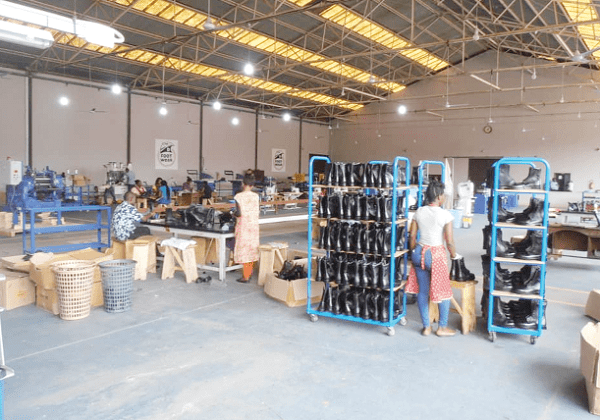
Security services must patronise Kumasi Shoe Factory products
Globalisation has indeed made the world smaller and that impact is felt in every facet of life.
On the economic front, the process has created the opportunity for consumers to get used to seeing products and produce from every corner of the world.
Advertisement
What comes into a country, commonly referred to as imports, provide more choices to consumers and help them manage strained household budgets.
In Ghana, for instance, products imported from China, Dubai and Turkey among others, are deemed to be cheaper on the market as compared to those produced locally.
In spite of their quality, they are able to meet the pockets of the ordinary man or woman on the street, hence the high demand for them.
Exciting as this fact is, it is also worth noting that too many imports without the corresponding volumes of exports can distort a nation’s balance of trade and devalue its currency.
It is common knowledge that the value of a currency is one of the biggest determinants of a nation’s economic performance.
Governments are aware of this simple economic theory and its grievous impact on economic growth.
To solve the problem, they embark on an industrialisation drive to cure that canker. But this has not fully succeeded in Ghana.
Last week, the management of the Kumasi Shoe Factory sounded a note of caution as it announced its intention to close the factory down over the refusal of the security agencies, particularly the Ghana Armed Forces, to patronise its boots and shoes.
According to reports, nothing had changed since November 2017, when the management of the factory came out to lament the effects of the refusal of the state security agencies to patronise their products.
The development has led to the operations of the factory taking a nosedive.
When the Daily Graphic visited the factory in Kumasi, work had slowed down because boots and shoes which had earlier been produced for the security agencies were yet to be purchased.
The workforce of 200 in 2012 when the company was resuscitated, had been slashed to 41 because there was little work to be done.
Sadly enough, the factory is presently said to be producing at about eight per cent of its installed capacity of 700,000 pairs of security boots per annum.
The development has been compounded by the continuous piling up of electricity bills, VAT and import duties on raw materials.
At this time when there are complaints about the stability of the local currency, high unemployment among many other economic challenges, the last thing the Daily Graphic expected was to see such huge investment meant to cure part of the canker of the import/export imbalance, go down the drain.
We find it unfortunate that the security agencies, which also complain of lack of financial resources, will resort to the foreign market to import exactly what can be produced here in the country to save the cedi and create jobs for people.
We plead with the government to use its strong purchasing power to help find a market for local industries such as the ailing shoe factory in Kumasi as part of measures to help reduce the pressure on the cedi.
We also ask the supervising ministries to ascertain why the security agencies are not patronising the products from the shoe factory.
We strongly believe that whatever the situation is, the security agencies should patronise the boots as was originally envisaged.
If the issue has to do with quality, efforts must be made to address that at all costs to get the factory back on its feet.
By that, our quest to attract other investors into the country can be justified.



